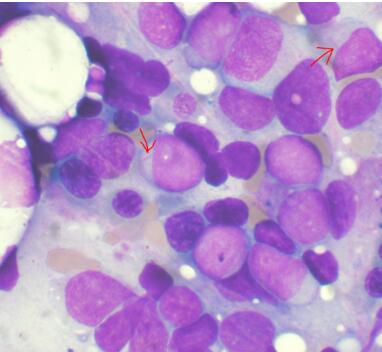Engineered safety switch may inhibit serious side effects of CAR-T cell immunotherapy
- Normal Liver Cells Found to Promote Cancer Metastasis to the Liver
- Nearly 80% Complete Remission: Breakthrough in ADC Anti-Tumor Treatment
- Vaccination Against Common Diseases May Prevent Dementia!
- New Alzheimer’s Disease (AD) Diagnosis and Staging Criteria
- Breakthrough in Alzheimer’s Disease: New Nasal Spray Halts Cognitive Decline by Targeting Toxic Protein
- Can the Tap Water at the Paris Olympics be Drunk Directly?
Engineered safety switch may inhibit serious side effects of CAR-T cell immunotherapy
Engineered safety switch may inhibit serious side effects of CAR-T cell immunotherapy. Blood: The engineered safety switch may inhibit serious side effects of CAR-T cell immunotherapy treatment!
In a research report published in the international journal Blood, scientists from the UNC Lineberger Comprehensive Cancer Research Center and other institutions have successfully used an experimental safety switch to reduce the severity of the side effects that occur from time to time. The safety switch can be used as part of chimeric antigen receptor T cell therapy (CAR-T therapy), which is a new type of immunotherapy. This research progress was discovered by researchers in clinical trials using CAR-T therapy to treat patients with refractory acute B-cell leukemia, which proved the expanded use of CAR-T immunotherapy with safety switches.
When using CAR-T therapy, T cells from the patient’s immune system can be modified to express part of the antibody that binds to the protein on the surface of cancer cells. After being returned to the patient’s body, the modified T cells can find and attack the patient’s body When treated with this therapy, patients with leukemia or lymphoma often experience complete remission of the disease, but sometimes they still experience the toxic effects of the therapy, which may be life-threatening because the modified T cells will Inflammatory reactions or neurotoxic effects are induced in the patient’s body.

Image source: Wikipedia
When using standard cancer therapies including pills and infusion drugs, doctors will interfere with or reduce the dose of the drug to deal with the toxic effects of the therapy; in cell-based immunotherapy, when the cells are infused It seems unlikely that this process will happen later in the patient’s body, so the researchers engineered T cells to carry a safety switch called iC9 (inducible caspase-9). If there is a toxic effect, it will The expression is activated; when the drug rimiducid is injected, it can induce the switch to activate the expression of caspase-9, thereby potentially reducing the serious side effects caused by CAR-T therapy.
Matthew Foster, MD, said that in this study, we engineered and produced a variety of CAR-T cells in clinical trials. In this case, we can generate benefits that can benefit patients by enhancing safety. Specialized CAR-T cells, and finally through joint research, we can use the drug rimiducid induced by the safety switch. In the article, the researchers recruited patients for early clinical trials to determine whether the new CAR-T cell therapy with the iC9 safety switch is safe and can effectively defend against relapsed or refractory B-cell acute lymphoblastic leukemia.
The researchers said that one of the 26-year-old women experienced severe side effects after CAR-T cell infusion, that is, neurotoxicity syndrome associated with immune effector cells. The clinician gave her rimiducid to activate the iC9 safety switch to quickly reduce In order to reduce the severity of side effects, as the researchers expected, this safety switch can reduce the number of circulating modified T cells in the body by nearly 60% within four hours, and the proportion can reach 90% within 24 hours. Above; this drug can almost eliminate the toxic side effects of the therapy in one day.
Gianpietro Dotti, MD, said that although this case study only recorded the results of one patient, the drug’s success and rapid effect gave us great hope, and it may be widely used in the treatment of leukemia patients in the future. go with. It is worth noting that although the drug rimiducid can slow down the toxic effects of the therapy, it also reduces the iC9 T cells by 90%, but it still seems to be enough to provide enough T cells to maintain the body’s anti-cancer immune response. In the next step, researchers will in-depth study the effects of low-dose drug rimiducid in patients with lower toxic effects, which may be used as a method to intervene in early toxic effects and inhibit severe toxic effects.
Considering the results of these studies and the high response rate identified in B-cell acute lymphoma patients treated with CAR-T cell therapy, researchers have reason to believe that they will achieve a higher standard in 2021 and allow more patients Obtain safety and effectiveness from the therapy. Finally, Jonathan Serody, MD, pointed out that now we see the potential of using CAR-T cell therapy with built-in safety switches to treat other cancers. The ability to use safety switches may help us treat more solid tumor patients, and these patients may also It is worried that CAR-T cell therapy will affect the non-cancerous tissues of the body; in these cases, the toxic side effects of the therapy may be eliminated by activating the safety switch.
(source:internet, reference only)
Disclaimer of medicaltrend.org



